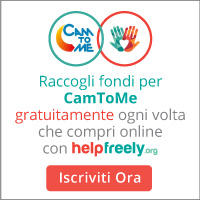From Community Engagement to Personal Liberation
Valeria Spelta, missionaria in Cambogia e referente del progetto “Formare al pensiero per educare alla vita“, ci ha inviato una testimonianza sull’esperienza fatta al St Paul a gennaio, quando undici studenti australiani sono stati ospitati per due settimane per uno scambio tra con gli studenti cambogiani.
L’articolo è in inglese, ma speriamo possa raggiungere molti.
Alleghiamo in fondo anche due video.
Okun!
By Manon Laporte
Last January, eleven Australian students had the privilege to participate in a community engagement exchange program between Saint Paul Institute Takeo, Cambodia and The University of Notre Dame Fremantle, Australia. I was one of those students. During these two weeks together we participated in seminars in which we shared thoughts and ideas around different topics such as inter-faith dialogue, political systems, refugees, media materials, climate change, history, economic development and social justice. These seminars, presented by the students themselves, were a very effective platform as they provided the relevant academic knowledge in relation to each topic and most importantly provided a safe environment where different views and perspectives could be discussed without judgement. As a result, students shared their cultural beliefs and values, and were often challenged by opposing views, which prompted a deeper reflexion process.
The daily schedule was well prepared. Every morning, we had a seminar during which one Australian and one Cambodian student would make a presentation, and then we would all participate in a series of short workshops. These group activities allowed us to develop meaningful relationships with each other because we were all equally inquisitive. As a Behavioural Science student, I thought it was fascinating to observe the different groups’ dynamic during these discussions but mostly everyone’s desire to hear and try to understand different opinions. I was very conscious of the fact that we had to speak very slowly to ensure we were being understood because of the different levels of English proficiency. Fortunately, during the students’ presentations, an interpreter was always present to maximise our comprehension.
Lunchtime was held at the dormitory where we all shared our meals. This again was an opportunity to learn about each other’s culture and traditions. We quickly realised the importance of rice in the Cambodian culture for it is present at every meal. I particularly enjoyed the traditional Khmer soup, which offers a combination of flavours that is unusual to the Australian pallet.
The afternoon sessions were composed of different cultural activities, such as dancing, theatre, sports and cooking of course. Again, both Australian and Cambodian students took the lead in sharing their culture through these activities. I quickly realised the richness of the Cambodian cultural expression in comparison to the Australian one, especially during the dancing activity. All these activities were followed by a one-hour Khmer/English lesson and then, for those who still had energy to burn, a game of soccer.
As a mature aged student, I was apprehensive about this experience because I could not predict how the Cambodian students would perceive me. I knew of the deep respect they hold to the elders, but I wondered how comfortable they would feel sharing their daily lives with a student who is old enough to be their mother. However, since we shared dormitories and meals, we were constantly together which allowed for deep friendships to develop.
The Cambodian students opened their space and hearts to a group of strangers and greeted us with open arms. I have never felt so loved, welcomed and appreciated before, which had a deep impact on me. I never expected these deep friendships to form and I still keep contact with my Cambodian friends on Facebook, which is very amusing because I had previously refused to open a Facebook account.
When I returned home, all loved-up, I realised that if these young adults could see beyond the old, overweight lady that was before them and really care for her with all their hearts, perhaps I should do the same and take better care of myself. I decided to exercise more and monitor what I eat. Since my return to Australia, I have lost 20 kilos and I feel much better now. I have also decided to finish my Behavioural Science degree with a Cambodian internship that I am organising with the collaboration of Saint Paul Institute. The aim of the internship is to provide meals to the most disadvantaged members of the local community on a trial basis, and find a way to make this project sustainable in the future. Therefore, not only have I been back to Cambodia two times already, but I should be back at the dormitory in 2017 for a new adventure.
This immersion program was a powerful catalyst for a positive change in both Cambodian and Australian students who had the opportunity to build a network of support. Experiencing the Cambodian culture provided us the opportunity to develop personal character and reflexivity, which are indispensable tools for the leaders of Tomorrow.











